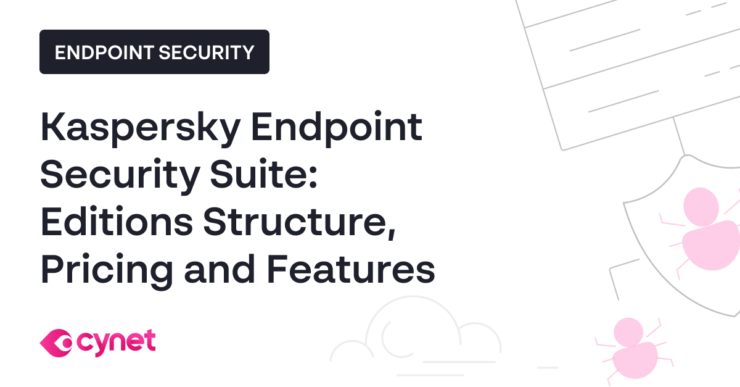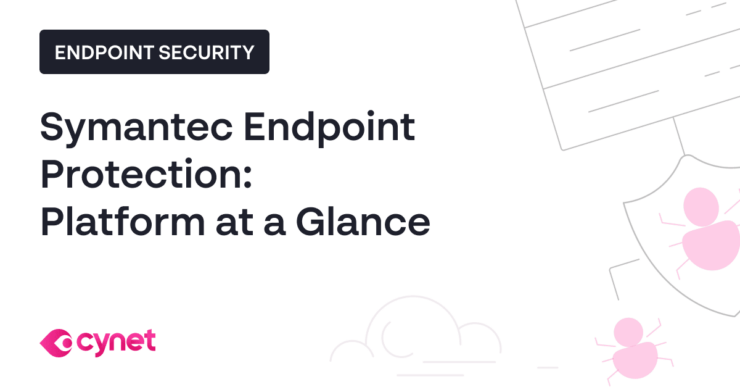Last Updated:
January 2, 2025

What Is Bitdefender?
Bitdefender is a cybersecurity and antivirus software company that was founded in 2001. With over 500 million users worldwide, it provides protection against online threats, including viruses, malware, ransomware, and phishing attacks.
The company offers products including Bitdefender Antivirus Plus, Bitdefender Internet Security, Bitdefender Total Security, and Bitdefender GravityZone Control Center. These products provide functionality like malware protection, multi-layer ransomware protection, VPN, and a password manager.
What Is Sophos?
Sophos is a British cybersecurity firm established in 1985. It offers a suite of security products for both consumers and businesses, including Sophos Home for personal use and Sophos Intercept X for business use. The Sophos Home product, which can manage the security of up to 10 devices (Windows and Mac) from a single web interface, is a security solution for families and small businesses.
Sophos Intercept X provides real-time threat prevention and web filtering. Using AI algorithms, it can protect against known and unknown malware, ransomware, and other advanced threats. It also offers centralized cloud-based management, which is useful for distributed organizations.
This is part of a series of articles about endpoint security.
Bitdefender vs. Sophos for Home Users: Key Differences
1. Protection Capabilities
Bitdefender uses artificial intelligence and other technologies to detect and block a range of threats, including viruses, ransomware, rootkits, trojans, and phishing attacks, taking a multi-layered approach to protection.
Sophos also provides protection against various types of malware. It combines traditional signature-based detection with behavioral analysis to identify known and unknown threats. Sophos has a threat intelligence network that regularly updates its malware definitions.
Bitdefender is often seen as the more robust of the two, especially when it comes to zero-day threats. However, Sophos is not far behind and is known for its real-time threat intelligence network.
Related content: Read our guide to Bitdefender security
2. Performance Impact
Bitdefender has a light footprint on system resources, so it can run in the background with minimal impact on your computer. It uses optimization techniques to avoid interfering with your system’s performance.
Sophos is also designed to be lightweight and unobtrusive. It uses minimal CPU and memory resources, so devices run normally during system scans.
Both antiviruses are lightweight and have minimal impact on system performance. However, Bitdefender’s optimization techniques give it a slight edge over Sophos.
3. User Interface and Experience
Bitdefender has an intuitive interface that is easy to navigate. The main features are accessible from the dashboard, and the settings are relatively straightforward.
Sophos also has a user-oriented interface, but with a slightly different approach. Its interface is more minimalist, with a focus on simplicity. Sophos also offers tips and guides within the software to help users navigate its features.
Both Bitdefender and Sophos have comparable interfaces for non-technical users and more security savvy users.
4. Cloud-Based Management
Bitdefender’s cloud-based management console can manage security from different devices. It can be used for setting up scans, checking the system’s protection status, and managing subscriptions.
Sophos enables cloud-based management through its Sophos Central platform, which can be used to manage security settings, from different devices. Sophos Central also includes threat analysis, policy management, and reporting.
Here too, these solutions are equivalent.
Related content: Read our guide to endpoint security management
Bitdefender vs. Sophos for Businesses
Here are the primary solutions offered by Bitdefender and Sophos for businesses and larger enterprises.
BitDefender GravityZone Platform
Bitdefender GravityZone provides a security solution that combines machine learning and heuristics with signatures and other techniques. It can protect against malware, ransomware, and zero-day threats.
Bitdefender GravityZone offers centralized management, so that IT teams can manage and control the platform. Its layered security can help businesses protect their endpoints, data center, and cloud environments from the console.
This platform uses intelligence collected from many devices worldwide, helping it detect and neutralize threats. Bitdefender GravityZone also offers risk analytics, hardening, and continuous risk assessment to provide visibility into an organization’s risk profile.
Sophos Intercept X
Sophos Intercept X is designed to stop a wide range of threats, integrating predictive, preventative, detective, and response capabilities. It uses deep learning technology to detect known and unknown malware without relying on signatures. Intercept X’s interface allows businesses to manage it with limited IT resources.
Sophos Intercept X offers endpoint detection and response (EDR), allowing security teams to investigate and respond to potential threats. Sophos Intercept X’s CryptoGuard technology can detect and stop ransomware attacks in real-time. This feature aims to revert files back to their safe states.
BitDefender GravityZone Pros and Cons
Bitdefender GravityZone has several advantages, including the technologies used to detect and neutralize threats. Its centralized management console helps IT teams to manage the platform, and its risk analytics provide businesses with an understanding of their risk profile.
However, Bitdefender GravityZone also has some limitations. Some users have reported that the platform can be a bit complex to set up, especially for smaller businesses with limited IT resources. Additionally, while the platform offers protection, its detection rates can sometimes be lower than other platforms.
Sophos Intercept X Pros and Cons
Sophos Intercept X uses deep learning technology that allows it to detect both known and unknown malware, and its CryptoGuard technology provides protection against ransomware attacks. The platform is also relatively easy to manage.On the downside, while Sophos Intercept X offers protection, it can sometimes result in false positives. Some users have also reported that the platform’s customer support can be slow to respond to inquiries.
BitDefender GravityZone vs. Sophos Intercept X: How to Choose?
If your business requires a platform with more advanced risk analytics and a centralized management console, Bitdefender GravityZone may be the better option of these two. However, if your business has limited IT resources and needs a platform that is easy to manage, Sophos Intercept X may be more suitable.
Cynet: Ultimate Bitdefender and Sophos Alternative
Cynet All-in-One is a holistic security solution that protects against threats to endpoint security and across your network. Cynet provides tools you can use to centrally manage endpoint security across the enterprise.
Cynet’s intelligent technologies can help you detect attacks by correlating information from endpoints, network analytics and behavioral analytics with almost no false positives.
With Cynet, you can proactively monitor entire internal environments, including endpoints, network, files, and hosts. This can help you reduce attack surfaces and the likelihood of multiple attacks.
Cynet All-in-One provides cutting edge EDR capabilities:
- Advanced endpoint threat detection—full visibility and predicts how an attacker might operate, based on continuous monitoring of endpoints and behavioral analysis.
- Investigation and validation—search and review historic or current incident data on endpoints, investigate threats, and validate alerts. This allows you to confirm the threat before responding to it, reducing dwell-time and performing faster remediation.
- Rapid deployment and response—deploy across thousands of endpoints within two hours. You can then use it to perform automatic or manual remediation of threats on the endpoints, disrupt malicious activity and minimize damage caused by attacks.
Learn more about our EDR security capabilities.
In addition, Cynet All-in-One provides the following endpoint protection capabilities:
- NGAV—providing automated prevention and termination of malware, exploits, Macros, LOLBins, and malicious scripts with machine learning-based analysis.
- User Behavior Rules—detecting and preventing attacks using compromised credentials through the use of behavioral baselines and signatures.
- Deception technology—planting fake credentials, files, and connections to lure and trap attackers, mitigating damage, and providing the opportunity to learn from attacker activity.
- Monitoring and control—providing asset management, vulnerability assessments, and application control with continuous monitoring and log collection.
- Response orchestration—providing manual and automated remediation for files, users, hosts, and networks customized with user-created scripts.
Learn more about the Cynet All-in-One security platform.



